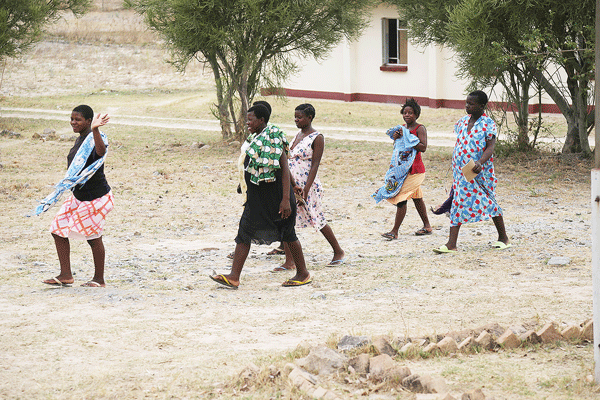
KAROI – It is Sunday midnight when Sarah Madanda (25) experiences the first signs of labour at a house in Old Chikangwe high density suburb.
BY NHAU MANGIRAZI

She wakes up her host, who lights a candle to dispel the darkness as the town has been experiencing electricity challenges of late.
Finally, they wrap up their preparations and call a taxi to ferry her to Karoi General Hospital, about 2km away. As part of her preparation, Madanda had two buckets of water on standby.
“My aunt told us that we must have our water when you visit maternity ward and we are all geared for it,” she explained.
True to her word, the nurses on duty asked her if she had enough water before they could assist her in the maternity ward. After nearly three hours, Matanda is happy that she has given birth to a baby girl.
Ironically, a dark cloud of uncertainty hovers over the referral hospital — which services 22 outlaying clinics in Hurungwe district — as it has gone for several days without water, posing a health hazard to both staff and patients.
Sources here explained that they were battling to get water.
- Chamisa under fire over US$120K donation
- Mavhunga puts DeMbare into Chibuku quarterfinals
- Pension funds bet on Cabora Bassa oilfields
- Councils defy govt fire tender directive
Keep Reading
“Water is a big challenge at our homes in Chikangwe, Chiedza and Claudia suburbs and who do you expect to give it to you during birth? We are also affected,” says one nurse speaking on condition of anonymity.
She explained that at times they are forced to release some patients before time due to unavailability of water.
“During the rabbis outbreak we had no option, but to tell some patients to go home as it was risky to keep them here where there is no water. Our water crisis has gone for too long,” another nurse manning the male ward said.
Matanda’s experience is not peculiar to her as hundreds other patients have gone through it for too long in silence.
Mashonaland West acting provincial medical director, Justice Mudavanhu, admitted that the hospital has suffered from the water crisis affecting Karoi town, situated about 204km north west of Harare.
He said the water crisis has been explained by Zimbabwe National Water Authority (Zinwa) who blamed low water levels affecting their source of water, Brockley Dam.
“We had meetings with Zinwa officials on a daily basis explaining our concerns as a health matter and they have reacted positively as water we sometimes get it, but is still critical for us,” he said.
Some Zinwa officials, however, said they had to meet their obligations after a local farmer paid for $7 000 for irrigation water at their head office.
“We know that the farmer paid $7 000 for irrigation purposes and the top guys never considered the challenges faced after payment,” the source said.
The disgruntled workers who have gone for seven months without salaries claimed management was not concerned about their welfare.
“It is a pity that these arrangements are being done without thinking of our plight. Everyone, including Zinwa workers, are affected,” the source said.
Zinwa communications manager Marjorie Munyonga is, however, on record saying they were facing financial challenges due to non-paying of water bills by clients including government departments which owe the parastatal money running into several millions of dollars.
“We appeal to consumers to pay so that service delivery can improve,” she said in a statement.
Pregnant women are most affected by the water crisis.











